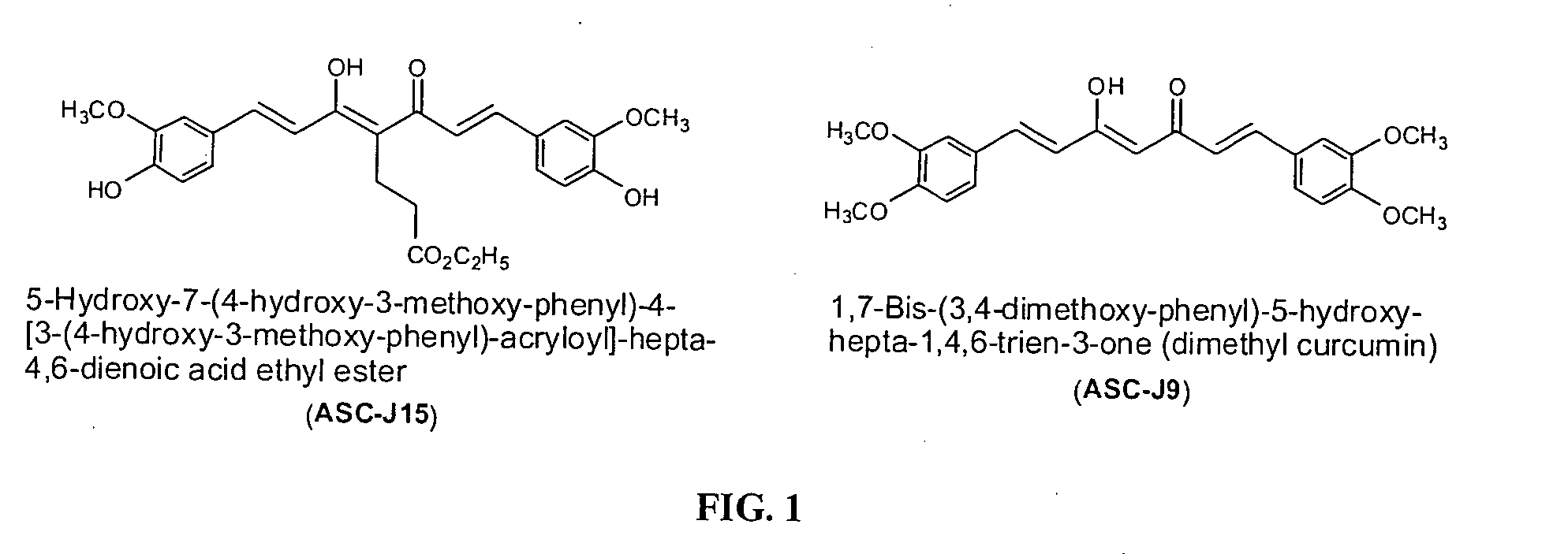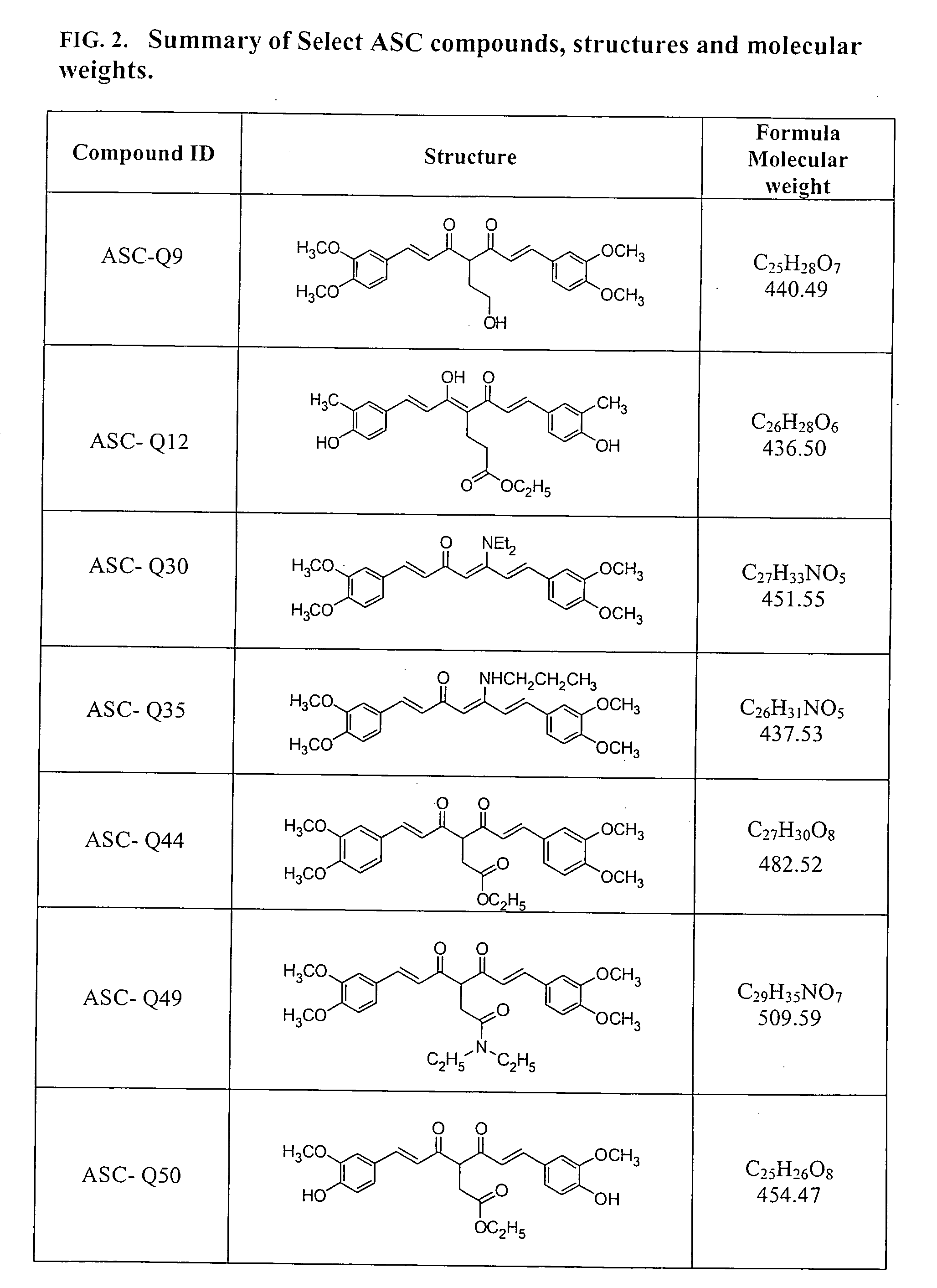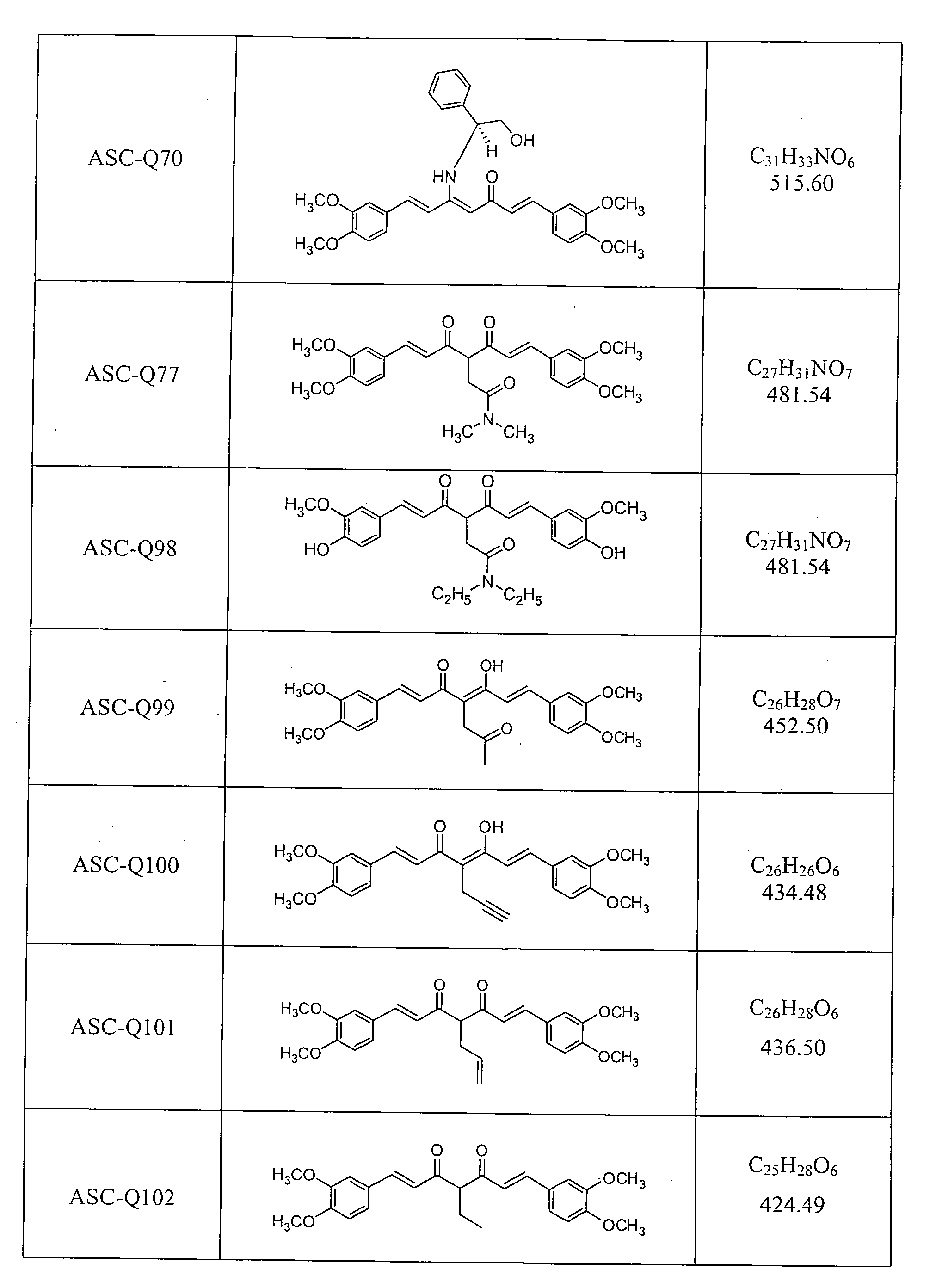Compounds with (substituted phenyl)-propenal moiety, their derivatives, biological activity, and use thereof
a technology of substituted phenylpropene and compound, applied in the field of compound with biological activity and pharmaceutical and cosmetic formulation, can solve the problems of compound in its native form being often not in the most optimal form, and the therapeutic effect of human diseases is not readily apparent, so as to prevent or improve symptoms, the effect of treating symptoms
- Summary
- Abstract
- Description
- Claims
- Application Information
AI Technical Summary
Benefits of technology
Problems solved by technology
Method used
Image
Examples
example 1
Preparation of Compounds and Derivatives Having at Least One (3,4-Alkoxy or Hydroxy Substituted Phenyl)-Propenal Moiety
[0077]In some embodiments, compounds composed of a single (substituted phenyl) propenal core structural unit (monomers) were prepared through standard and advanced organic syntheses. In some embodiments, compounds consisting of two or more (substituted phenyl) propenal core structural moieties were prepared by a condensation of substituted benzaldehydes and 2,4-pentanedion or 3-substituted 2,4-pentanedions by the method known in the literature. Pedersen et al. (Liebigs Ann. Chem., 1557-1569, 1985). The desired substituents on the biphenyl ring and on the C4 of conjugation bridge were synthesized either before or after the condensation. The length of conjugation bridge between the two phenyl moieties could be varied from 5 carbons to 11 carbons through synthetic strategies. Properly adding and removing protecting groups allow ultimate synthesis of the disclosed deriv...
example 2
Detecting Biological Effects of Compounds Having at Least One (3,4-Alkoxy or Hydroxy Substituted Phenyl)-Propenal Moiety on Human Androgen Receptor (AR) and Androgen / AR-Mediated Activity
[0135]Representative ASC compounds and monomers were tested for their activity to block androgen / AR-induced functions. A cell growth assay using human prostate cancer cells, either LNCaP or CWR22Rv1, was applied in the studies. Functional AR proteins are expressed in both cancer cell lines; whereas the growth of LNCaP cells is DHT dependant, but the growth of CWR22Rv1 cells, derived from a relapsed hormone-refractory tumor, was not. In addition, Western Blot analysis were performed by testing monomers, and some representative new compounds in prostate cancer cells to demonstrate that compounds with at least one (4-hydroxy-3-methoxy-phenyl)-propenal moiety are capable of reducing AR protein expression levels and inhibiting cancer cell growth in vitro.
In Vitro Cell Growth Assays Using Human Prostate Ca...
PUM
| Property | Measurement | Unit |
|---|---|---|
| pH | aaaaa | aaaaa |
| temperature | aaaaa | aaaaa |
| temperature | aaaaa | aaaaa |
Abstract
Description
Claims
Application Information
 Login to View More
Login to View More - R&D
- Intellectual Property
- Life Sciences
- Materials
- Tech Scout
- Unparalleled Data Quality
- Higher Quality Content
- 60% Fewer Hallucinations
Browse by: Latest US Patents, China's latest patents, Technical Efficacy Thesaurus, Application Domain, Technology Topic, Popular Technical Reports.
© 2025 PatSnap. All rights reserved.Legal|Privacy policy|Modern Slavery Act Transparency Statement|Sitemap|About US| Contact US: help@patsnap.com



